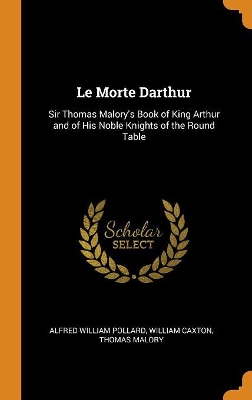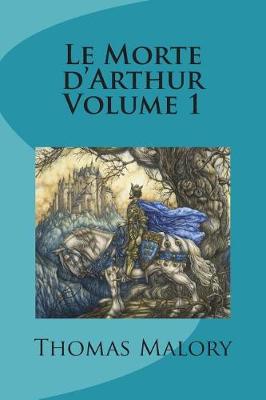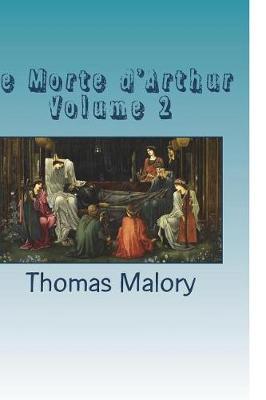Le Morte D'Arthur
1 primary work • 3 total works
Book 1
Le Morte Darthur
by Alfred William Pollard, William Caxton, and Thomas Malory
Published 1 November 1986
The legends of King Arthur and his knights of the Round Table have inspired some of the greatest works of literature--from Cervantes's Don Quixote to Tennyson's Idylls of the King. Although many versions exist, Malory's stands as the classic rendition. Malory wrote the book while in Newgate Prison during the last three years of his life; it was published some fourteen years later, in 1485, by William Caxton. The tales, steeped in the magic of Merlin, the powerful cords of the chivalric code, and the age-old dramas of love and death, resound across the centuries.
The stories of King Arthur, Lancelot, Queen Guenever, and Tristram and Isolde seem astonishingly moving and modern. Malory's Le Morte d'Arthur endures and inspires because it embodies mankind's deepest yearnings for brotherhood and community, a love worth dying for, and valor, honor, and chivalry.
The stories of King Arthur, Lancelot, Queen Guenever, and Tristram and Isolde seem astonishingly moving and modern. Malory's Le Morte d'Arthur endures and inspires because it embodies mankind's deepest yearnings for brotherhood and community, a love worth dying for, and valor, honor, and chivalry.
Sir Thomas Malory's richly evocative and enthralling version of the Arthurian legend
Recounting Arthur's birth, his ascendancy to the throne after claiming Excalibur, his ill-fated marriage to Guenever, the treachery of Morgan le Fay and the exploits of the Knights of the Round Table, it magically weaves together adventure, battle, love and enchantment. Le Morte D'Arthur looks back to an idealized Medieval world and is full of wistful, elegiac regret for a vanished age of chivalry. Edited and published by William Caxton in 1485, Malory's prose romance drew on French and English verse sources to give an epic unity to the Arthur myth, and remains the most magnificent re-telling of the story in English.
For more than seventy years, Penguin has been the leading publisher of classic literature in the English-speaking world. With more than 1,700 titles, Penguin Classics represents a global bookshelf of the best works throughout history and across genres and disciplines. Readers trust the series to provide authoritative texts enhanced by introductions and notes by distinguished scholars and contemporary authors, as well as up-to-date translations by award-winning translators.
Recounting Arthur's birth, his ascendancy to the throne after claiming Excalibur, his ill-fated marriage to Guenever, the treachery of Morgan le Fay and the exploits of the Knights of the Round Table, it magically weaves together adventure, battle, love and enchantment. Le Morte D'Arthur looks back to an idealized Medieval world and is full of wistful, elegiac regret for a vanished age of chivalry. Edited and published by William Caxton in 1485, Malory's prose romance drew on French and English verse sources to give an epic unity to the Arthur myth, and remains the most magnificent re-telling of the story in English.
For more than seventy years, Penguin has been the leading publisher of classic literature in the English-speaking world. With more than 1,700 titles, Penguin Classics represents a global bookshelf of the best works throughout history and across genres and disciplines. Readers trust the series to provide authoritative texts enhanced by introductions and notes by distinguished scholars and contemporary authors, as well as up-to-date translations by award-winning translators.
Volume two of Le Morte D'Arthur, Sir Thomas Malory's powerful and elegaic version of the Arthurian legend, recounts the adventures of Sir Tristram de Liones and the treachery of Sir Mordred, and follows Sir Launcelot's quest for The Holy Grail, his fatally divided loyalties, and his great, forbidden love for the beautiful Queen Guenever. Culminating in an account of Arthur's final battle against the scheming, deceitful Mordred, this is the definitive re-telling of the Arthurian myth, weaving a story of adultery, treachery and ultimately - in its tragic finale - death. Edited and published by William Caxton in 1485, Malory's moving prose romance looks back to an idealised Medieval age of chivalry, drawing on French and English verse sources to create an epic masterpiece of passion, enchantment, war and betrayal.


